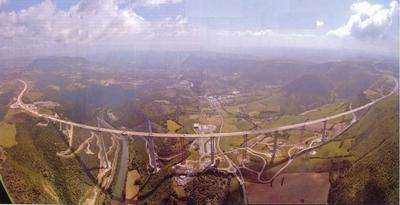
The French may have come up with a solution to all that traffic clogging up our highways in the U.S. The costs my be prohibative, but the views would be spectacular. (Thanks to Randy Russell for photo)

 With the opening of a new 125,000 sq. ft. Target this month, Glenwood Springs becomes one of the smallest communities in the U.S. with the three retail giants duking it out over the region's retail purchases. Glewnood's population is only 8,500.
With the opening of a new 125,000 sq. ft. Target this month, Glenwood Springs becomes one of the smallest communities in the U.S. with the three retail giants duking it out over the region's retail purchases. Glewnood's population is only 8,500.